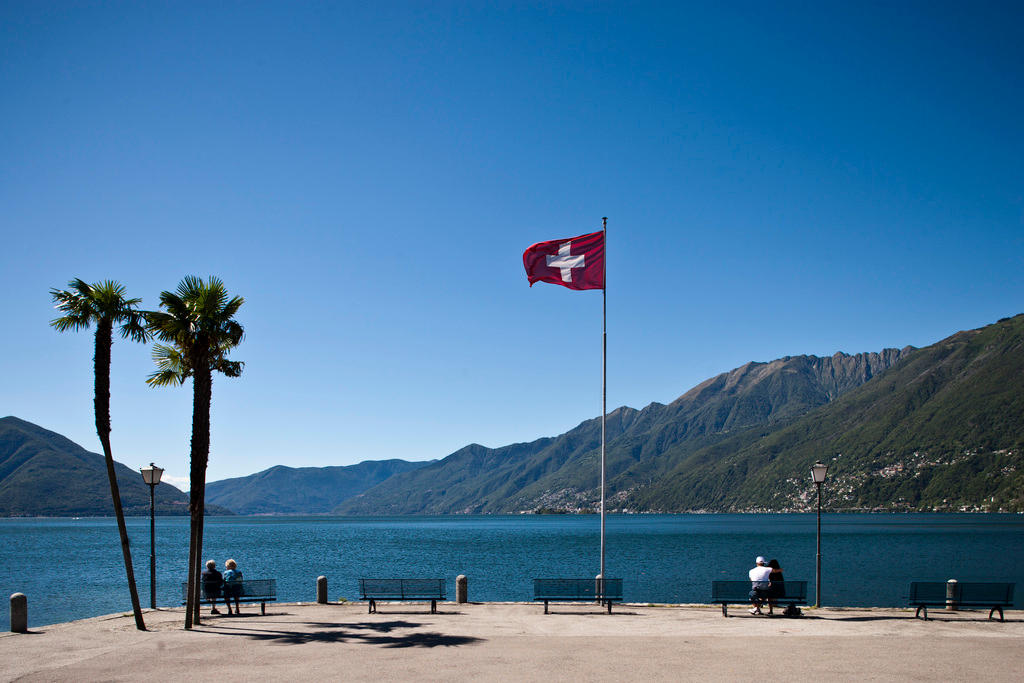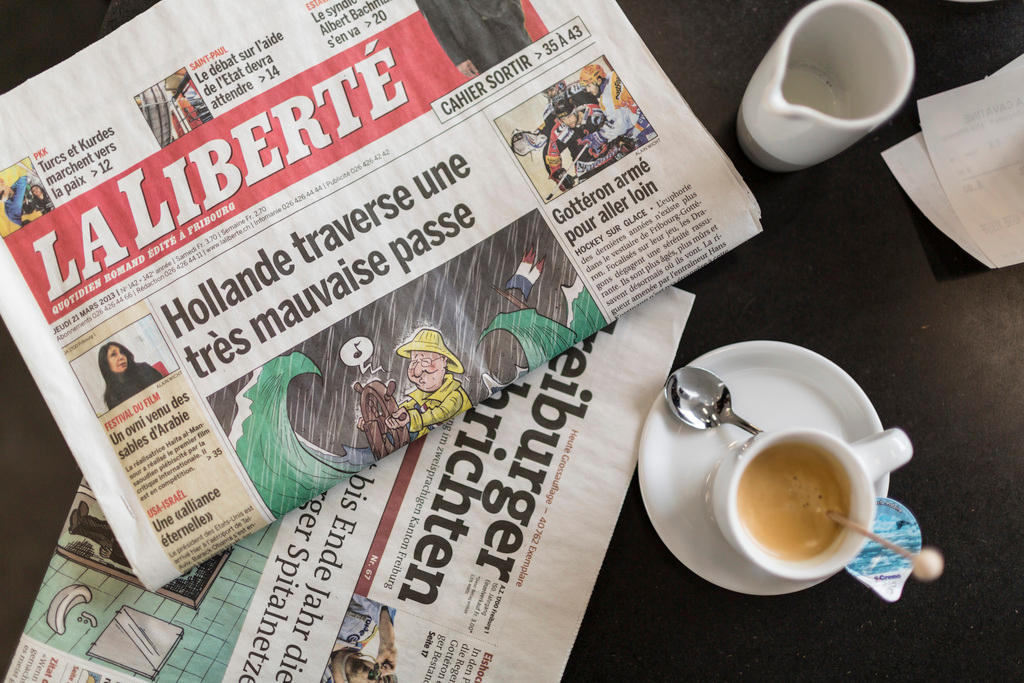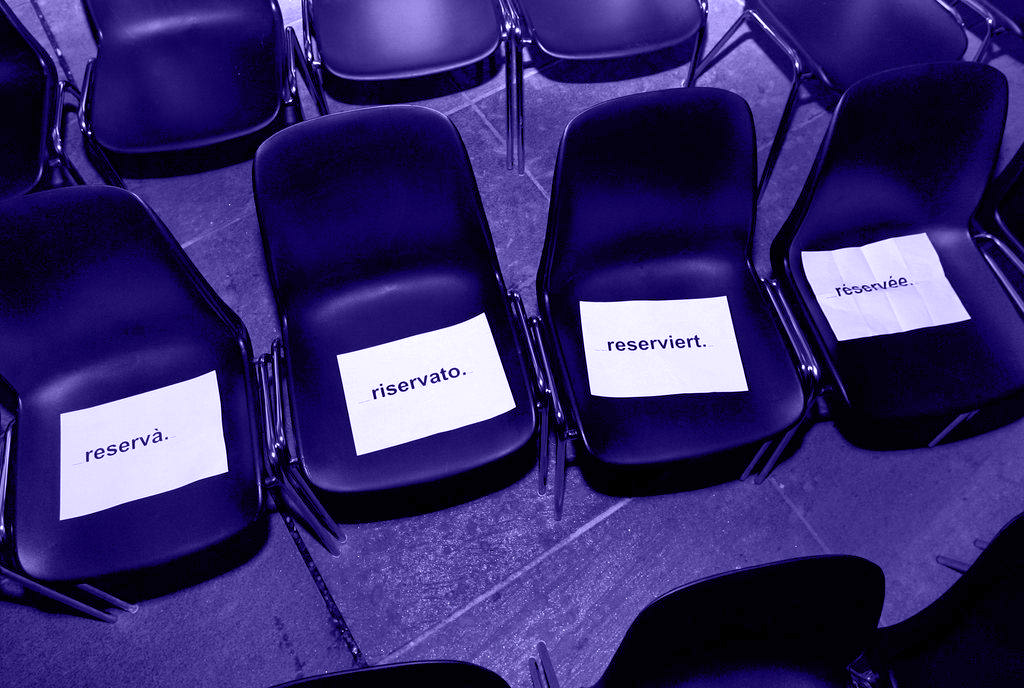Is there such a thing as ‘Latin Switzerland’?

Switzerland’s French and Italian speakers - the ‘Latins’ - are sometimes painted as a single political bloc forming a natural ally against the German-speakers. But this is far from the truth.
There is a moment, during the train journey from Bern to Geneva, after rolling through the farmlands of Fribourg, when you enter a long tunnel. All normal, you think. But then you suddenly emerge high above the turquoise crescent of Lac Léman, fringed on one side by sheer mountains that seem to spring straight from the water and on the other by warrens of stacked twisting vineyards, and, especially if the sun is shining, it’s difficult not to think: the South.
The same sensation is present when cresting (or burrowing through) the Gotthard, connecting German-speaking canton Uri with Italian-speaking Ticino, where you’re likely to be met with sunshine and palm trees.
There’s a reason Switzerland has names for the virtual dividing lines between its linguistic regions: the so-called “röstigraben” and “polentagraben” mark not only the shift from German to French and Italian, but also from one culture and geography to another, from something northern to something more Latin.
Indeed it’s common to hear the phrase “Latin Switzerland” used to describe the country’s French and Italian speakers; linguistically, the romance tongues are a world away from guttural German.
Politically, however, it’s a myth that needs revising, finds recent researchExternal link by the Avenir Suisse think-tank. After tracking three decades of voting behaviour across German-speaking, French-speaking, and Italian-speaking Switzerland, they come to an adamant conclusion: “Latin Switzerland does not exist.”
Distinct voting blocs
The researchers not only find that diverging voting patterns show that “speaking a language other than German is not enough to forge a common identity”, but that Italian and French speakers are often far apart on the political spectrum.
Focusing on two broad vote issues – Europe and international cooperation, and identity and citizenship – they show that, almost always, French-speaking and Italian-speaking cantons end up on starkly opposing sides of the (German-led) national average.
Switzerland’s linguistic make-up
Switzerland has four national languages: German, French, Italian and Romansh. German (both High German and Swiss German) is spoken by about 63% of the population, French by about 23%, and Italian by about 8%. Romansh is spoken by less than 1% of the total population. French is spoken in the west of the country, while Italian is spoken in Ticino and the south of neighbouring Graubünden. Romansh is spoken only in Graubünden.
On European issues, the gap stretches to a sometimes “spectacular” 30%, with canton Ticino systematically voting against more rapprochement with the European Union (EU) while the cantons of French-speaking Switzerland are more open than the national average.
For example, in 1992, while over 70% of French-speakers voted in favour of Switzerland joining the European Economic Area, fewer than 40% of Ticinese approved. Fast-forward twenty years and the same story persists, albeit inverted: almost 70% of Italian-speakers were in favour of the 2014 mass immigration initiative, while only 43% of French-speakers backed it.
The same is also true for the other category of votes – “identity-related” ballots. Though the figures are less striking, Avenir Suisse found that Ticino is less keen than the Swiss average to speed up any naturalisation process, while French-speaking cantons are clearly in favour.
Most recently, when the country voted on easing citizenship procedures for third-generation immigrants, a gap of 20% yawned between the two regions. Similarly, on asylum issues Ticino votes “restrictively”; French-speakers are more “permissive”.
Competing for scraps
So why does the myth of Latin togetherness persist? Report author Tibère Adler says that an impetus for the research was last year’s election of Switzerland’s newest member of the Federal Council. In order to maintain a regional balance in the seven-member executive branch, the position was left uncontested by German-speaking politicians, who deemed it a “Latin” space; and in the end, Ticinese Ignazio Cassis was chosen, the first Federal Council member from the region since 1999.

More
How many Swiss regularly use at least four languages?
But there was scant sense of fraternity among the candidates. The role was hotly contested by several French-speakers, who didn’t see any sign that Ticino’s time had come.
Adler said that this dual view of allegiances applies generally, and reflects the paradox: the German-speaking majority see themselves simply as “Switzerland” and see the French and Italian speakers as the “others”. This misses the nuances that separate not only the two southern languages, but that also distinguish the different parts of French-speaking Switzerland itself – far from a homogeneous region.
Marco Chiesa, a People’s Party (conservative right) parliamentarian from Lugano in Ticino, agrees. Despite being vice-president of Helvetia Latina, a group pushing for “linguistic diversity” in the federal administration, he says that it’s difficult to even talk about a common identity between a Geneva banker and a farmer from Vaud (both French-speaking).
He also says that politically, in Bern, in the battle to catch scraps dropped by the German majority, French- and Italian-speakers are more often competing than collaborating; both are minorities fighting for recognition.
‘Forgotten’ in the capital
In recent years, this competition has intensified, especially from the Ticinese side. Both Chiesa and Adler mention the common refrain that the Italian speakers feel “forgotten” by Bern, and it is hard to avoid the sense that the canton – just 350,000 people, and geographically isolated behind the Alps – is going through a moment of mutation.
Afflicted by brain drain and job market pressure from the surrounding regions of Italy (“the number of cross-border workers has doubled”, says Chiesa), the canton has seen the growth of an influential right-wing party, the Lega dei Ticinese, which campaigns on a strong identitarian stance.
“We are always the losers!” says Chiesa. He laments the freedom of movement agreement with Europe, which he says benefits his canton much less than other border regions like Basel, St Gallen, or the international city of Geneva. But are they really losers, or rather a minority that knows how to make its voice heard?
“They play on it, they victimise it,” says Adler of Ticino’s right-wing movements. Although structural changes are happening in the Ticino economy, he thinks the rhetoric is exaggerated, especially by the “tactically efficient” Lega.
Cultural, not political
So, “Latin Switzerland” – does it exist or not?
“Absolutely,” says Chiesa – when it comes to common roots, a common culture and similar languages. Highlighting those commonalities through an organisation like Helvetia Latina benefits “national cohesion,” he argues.
But when it comes to politics, and the “game of common interests” that characterises the consensual Swiss system, it’s every man for himself, and Chiesa thinks the German speakers simply have more to offer. Even on a pragmatic day-to-day basis, he says, “if you ask somebody from Ticino who they would most like to work with, they will say a Swiss German”.

In compliance with the JTI standards
More: SWI swissinfo.ch certified by the Journalism Trust Initiative














You can find an overview of ongoing debates with our journalists here . Please join us!
If you want to start a conversation about a topic raised in this article or want to report factual errors, email us at english@swissinfo.ch.